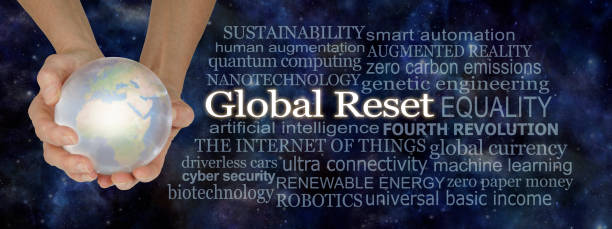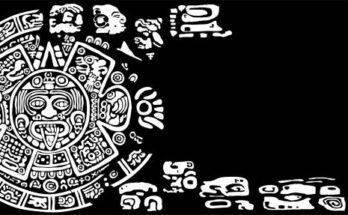In a world marked by diversity, where cultures, beliefs, and practices vary across continents, the idea of a single world religion seems like an elusive dream. The notion of unifying humanity under one spiritual umbrella raises profound questions about cultural identity, religious freedom, and the very essence of human existence. This article delves into the complexities surrounding the possibility of a single world religion, examining historical precedents, contemporary challenges, and the potential benefits and drawbacks of such a global shift.
Historical Perspectives
 (Photo from iStock)
(Photo from iStock)
Throughout history, various attempts have been made to unite disparate religious traditions or establish a dominant global faith. From the ancient concept of syncretism to more recent movements like the Baha’i Faith, which emphasizes the unity of all religions, the idea of a single world religion is not entirely novel. However, historical attempts have faced significant challenges, often succumbing to the deep-rooted differences in belief systems and the resistance to homogenization.
The Role of Globalization
In the 21st century, the rapid pace of globalization has brought people closer than ever before, fostering intercultural exchanges and interfaith dialogues. While this interconnectedness has the potential to create a more tolerant and understanding world, it also highlights the complexities of reconciling diverse religious beliefs. As cultures mingle and ideas circulate, questions arise about whether a shared spiritual framework could emerge, transcending borders and fostering a sense of global unity.
Challenges to a Single World Religion
One of the primary obstacles to a single world religion is the deeply ingrained nature of religious identity. For billions of people, their faith is not merely a set of beliefs but a fundamental aspect of their cultural and personal identity. The prospect of abandoning centuries-old traditions and embracing a uniform global religion raises concerns about the loss of cultural heritage and the erosion of individual and collective identities.
Moreover, religious doctrines often include exclusivist elements that define believers as part of an exclusive community. Overcoming these exclusivist tendencies and fostering inclusivity on a global scale presents a formidable challenge. The history of religious conflicts and tensions demonstrates the difficulty of reconciling divergent beliefs and practices.
Religious Freedom and Human Rights
 (Photo from iStock)
(Photo from iStock)
Advocates for religious freedom argue that the pursuit of a single world religion could infringe upon individual liberties. The Universal Declaration of Human Rights recognizes the right to freedom of thought, conscience, and religion, emphasizing the autonomy of individuals to choose and practice their beliefs. Imposing a single world religion could be seen as a violation of this fundamental human right, sparking resistance from those who value religious diversity and personal freedom.
Benefits of a Single World Religion
On the flip side, proponents of a single world religion suggest that it could bring about unprecedented global harmony. They argue that a shared spiritual framework could promote understanding, cooperation, and peace among nations. By fostering a sense of common purpose and shared values, a global religion might provide a moral compass for addressing pressing global issues, such as climate change, poverty, and inequality.
Furthermore, a single world religion could potentially bridge the gap between different cultures, promoting cross-cultural understanding and reducing the likelihood of religiously motivated conflicts. This vision aligns with the idea that a shared spiritual foundation could serve as a unifying force, transcending political, ethnic, and national boundaries.
In conclusion, the prospect of a single world religion remains a complex and contentious issue. While historical attempts and contemporary global dynamics suggest that the idea is not entirely implausible. Numerous challenges and ethical concerns surround its realization.
Potential Pathways Forward
Exploring the feasibility of a single world religion requires considering potential pathways forward. Interfaith dialogues, educational initiatives, and collaborative efforts could play pivotal roles in fostering understanding among different religious communities. Emphasizing shared values, such as compassion, justice, and environmental stewardship. Might provide a common ground for building bridges between diverse faiths.
Efforts to find commonalities among religious traditions, acknowledging their shared ethical principles and moral teachings. Could serve as a foundation for a more inclusive spirituality. Initiatives promoting religious literacy and cultural exchange may contribute to breaking down stereotypes and misconceptions. Fostering a climate where people are more open to the idea of a harmonious coexistence of diverse beliefs.
Technological Advancements and Connectivity
 (Photo from iStock)
(Photo from iStock)
In the age of technological advancements and increasing global connectivity. The dissemination of information has the potential to break down barriers and facilitate cross-cultural understanding. Social media, online platforms, and virtual spaces enable individuals from different corners of the world to engage in conversations. Share perspectives, and learn about various faith traditions.
Technological innovations may also provide new avenues for creating shared spiritual experiences that transcend geographical boundaries. Virtual reality, for example, could offer immersive encounters with diverse religious practices, fostering empathy. And appreciation for the richness of human spirituality.
The Role of Leadership and Institutions
Leadership, both religious and political, plays a crucial role in shaping societal attitudes and fostering cooperation. Religious leaders who advocate for tolerance. Inclusivity, and dialogue can contribute significantly to creating an environment conducive to the acceptance of diverse beliefs. Similarly, political leaders who prioritize religious freedom and interfaith collaboration can set the stage for a more harmonious global society.
International institutions, such as the United Nations, could play a facilitating role in promoting interfaith dialogue and understanding. Establishing platforms for global cooperation on shared challenges, where representatives from various faith traditions collaborate. May gradually pave the way for a more integrated and cooperative global spiritual landscape.
Conclusion
While a single world religion remains a challenging proposition, exploring alternative avenues for fostering global unity and understanding is crucial. The journey towards a more interconnected and harmonious world involves navigating the delicate balance. Between preserving cultural diversity and seeking common ground. As we continue to grapple with the complexities of human spirituality. It is essential to approach the idea of a single world religion with humility. Respect, and a commitment to building bridges across the diverse tapestry of beliefs that shape our world.




